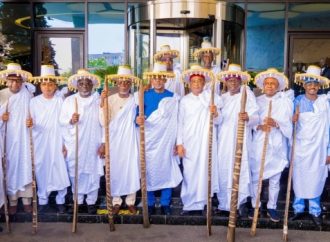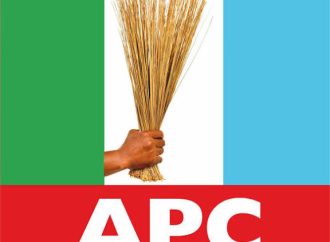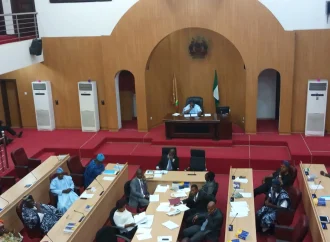₦670 Million Directive: Kano State’s Controversial Emirate Vehicle Plan Sparks Debate In a move that has ignited widespread public discourse and raised questions about fiscal priorities, a report has revealed that the Kano State government has instructed all 44 local government areas in the state to contribute a combined total of ₦670 million to the
₦670 Million Directive: Kano State’s Controversial Emirate Vehicle Plan Sparks Debate

In a move that has ignited widespread public discourse and raised questions about fiscal priorities, a report has revealed that the Kano State government has instructed all 44 local government areas in the state to contribute a combined total of ₦670 million to the Kano Emirate Council. The funds, according to an official memo, are to be used for the repair of vintage vehicles and the purchase of new vehicles for the Emir of Kano, Alhaji Muhammadu Sanusi II.
The directive, detailed in a document dated March 25, 2025, and issued by the Ministry of Local Government, has caused a stir among citizens and civil society organizations who are questioning the necessity and timing of such a substantial expenditure.
EFCC Plan To Release VeryDarkMan Amidst Pending Charges
Kano State’s LGAs Ordered to Fund Emirate Vehicle Projects
The memo, with reference number MLG/INSP/LGD/166T/6, was addressed to all local government chairmen across the state and signed by the Director of Local Government Inspection, Abubakar S. Dabo, on behalf of the Commissioner for Local Government. It mandates each LGA to contribute ₦15,227,272.72 from the State/Local Government Joint Account, culminating in the grand total of ₦670 million.
The stated purpose of the funds is to repair two classic vehicles and procure four brand-new ones for the Kano Emirate Council. According to the breakdown provided in the memo, the refurbishing of a 1993 Fleetwood Cadillac Limousine and a 1998 Daimler D5 420 is estimated at ₦25 million each. Meanwhile, the new vehicles to be purchased include:
- A 2024 Toyota Hilux pickup – ₦98 million
- A Toyota Hiace Bus – ₦98 million
- A Toyota Land Cruiser VXR (full option) – ₦268 million
- A 2024 Toyota Prado – ₦156 million
The vehicles are to be procured and serviced through Sottom Synergy Resources Ltd., a company already contacted to begin the process, according to a palace official quoted in the Punch newspaper.
Public Reactions and Concerns Over Priorities
The revelation has prompted a flurry of public reactions, with critics accusing the government of misplacing priorities. At a time when many local governments are reportedly struggling with basic infrastructural deficits, such a financial directive has been labeled “wasteful” and “elitist” by some citizens and watchdog groups.
“What does this say about the state’s governance priorities?” asked Musa Lawan, a political analyst based in Kano. “This is a state where schools lack furniture, hospitals face medicine shortages, and yet almost ₦700 million is being channeled into luxury vehicles?”
Others have pointed out the implications for transparency and accountability. The fact that deductions are to be made directly from the joint account—without prior consultations with local government stakeholders—has raised constitutional concerns. The State/Local Government Joint Account is intended to serve the development needs of each LGA, not necessarily the ceremonial needs of traditional institutions.
Despite public backlash, a palace official has confirmed the authenticity of the memo and the planned vehicle acquisition. “The company has already been contacted, and plans are in motion to bring in the vehicles and begin the restoration of the vintage ones,” the source disclosed, adding that the refurbishments aim to preserve royal heritage.
Furthermore, the memo was also copied to key oversight offices, including the Auditor General for Local Government Audit and all Zonal Inspectors in the Ministry for Local Government, instructing them to ensure that “all due procedures are strictly adhered to.” This appears to be the state government’s attempt to maintain procedural compliance and shield the directive from accusations of financial recklessness.
While there is no denying the cultural significance of traditional institutions in Northern Nigeria, many argue that such monumental expenditures should be subjected to broader scrutiny. Legal experts have highlighted that unless budgeted and approved by the state legislature, this kind of spending could be challenged in court.
“Traditional institutions should be supported, but not at the cost of basic governance,” said Barrister Amina Bello, a public finance lawyer. “There should be balance and legal oversight to prevent misuse of shared government resources.”
As this issue continues to gain traction across social media and local radio platforms, pressure is mounting on the Kano State government to either justify the expenditure with detailed cost-benefit analysis or consider redirecting the funds toward more pressing development concerns.
For now, the question remains: In a state grappling with numerous economic challenges, is the lavish spending on royal transportation justifiable?

















Leave a Comment
Your email address will not be published. Required fields are marked with *